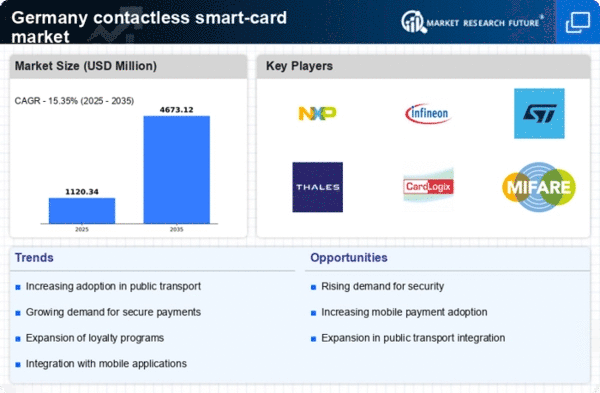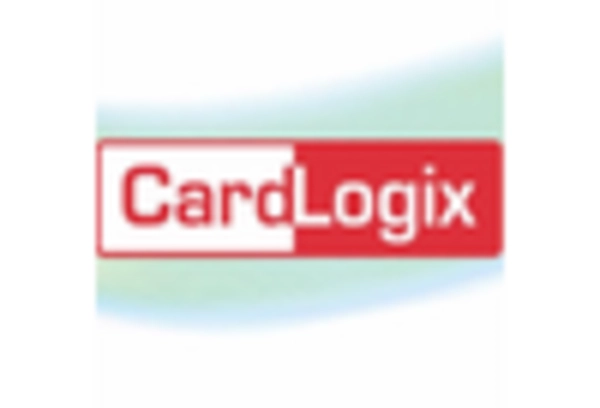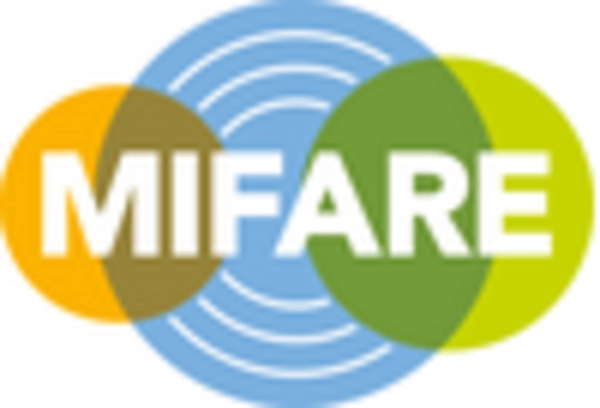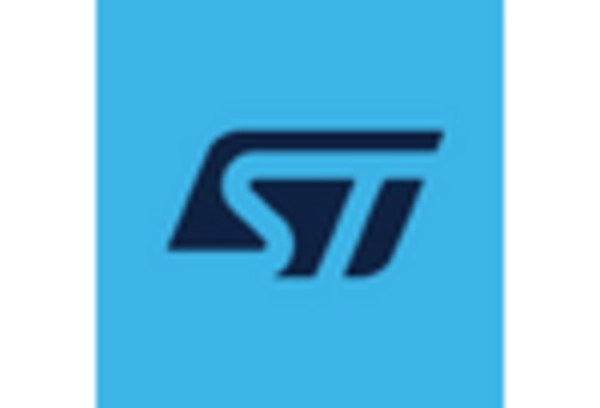Consumer Awareness and Education
Consumer awareness and education regarding contactless payment technologies are vital drivers for the contactless smart-card market in Germany. As more individuals become informed about the benefits and functionalities of contactless cards, their adoption rates are likely to increase. Educational campaigns by financial institutions and payment providers have been instrumental in demystifying contactless payments, addressing concerns about security and usability. Surveys indicate that nearly 65% of consumers are now aware of contactless payment options, which has contributed to a growing acceptance of this technology. The contactless smart-card market is thus benefiting from enhanced consumer confidence, as individuals feel more comfortable using contactless solutions for everyday transactions. This trend is expected to continue, further propelling the market forward.
Government Initiatives and Regulations
Government policies and regulations play a crucial role in shaping the contactless smart-card market in Germany. The German government has been actively promoting digital payment solutions to enhance financial inclusion and streamline transactions. Initiatives aimed at modernizing payment infrastructure and encouraging the use of contactless technology are evident. For instance, the introduction of regulations that support the interoperability of payment systems has facilitated the growth of the contactless smart-card market. Furthermore, the European Union's directives on payment services have also influenced the market by establishing standards that enhance security and consumer protection. As a result, the regulatory environment is conducive to the expansion of contactless payment solutions, driving further investment and innovation in the industry.
Expansion of Retail and Service Sectors
The expansion of the retail and service sectors in Germany is a significant driver for the contactless smart-card market. As businesses increasingly adopt digital payment solutions, the demand for contactless smart cards is expected to rise. The retail sector, in particular, has witnessed a transformation, with many stores implementing contactless payment systems to enhance customer experience. Data suggests that over 70% of retailers in urban areas now offer contactless payment options, reflecting a shift towards modern payment methods. This trend is likely to continue as more businesses recognize the benefits of speed and efficiency in transactions. The contactless smart-card market is thus positioned to benefit from this expansion, as both small and large enterprises invest in technology to meet consumer expectations.
Growing Demand for Contactless Payments
The increasing consumer preference for contactless payment methods is a primary driver for the contactless smart-card market in Germany. As more individuals seek convenience and speed in transactions, the adoption of contactless cards has surged. Recent data indicates that approximately 60% of all card transactions in Germany are now contactless, reflecting a significant shift in consumer behavior. This trend is further supported by the rise of e-commerce and mobile payments, which have encouraged retailers to adopt contactless solutions. The contactless smart-card market is thus experiencing robust growth, as financial institutions and payment service providers invest in technology to meet this demand. The convenience of simply tapping a card at a terminal is appealing to consumers, leading to increased usage and acceptance across various sectors, including retail and hospitality.
Technological Advancements in Card Security
Technological innovations in security features are significantly impacting the contactless smart-card market in Germany. As concerns over data breaches and fraud continue to rise, the industry is responding with enhanced security measures. The integration of advanced encryption technologies and biometric authentication methods is becoming more prevalent, ensuring that transactions are secure. Recent advancements have led to the development of cards equipped with dynamic CVVs and tokenization, which protect sensitive information during transactions. This focus on security not only builds consumer trust but also encourages the adoption of contactless smart cards across various sectors. The contactless smart-card market is thus evolving to meet the demands for safer payment solutions, which is likely to drive further growth in the coming years.















